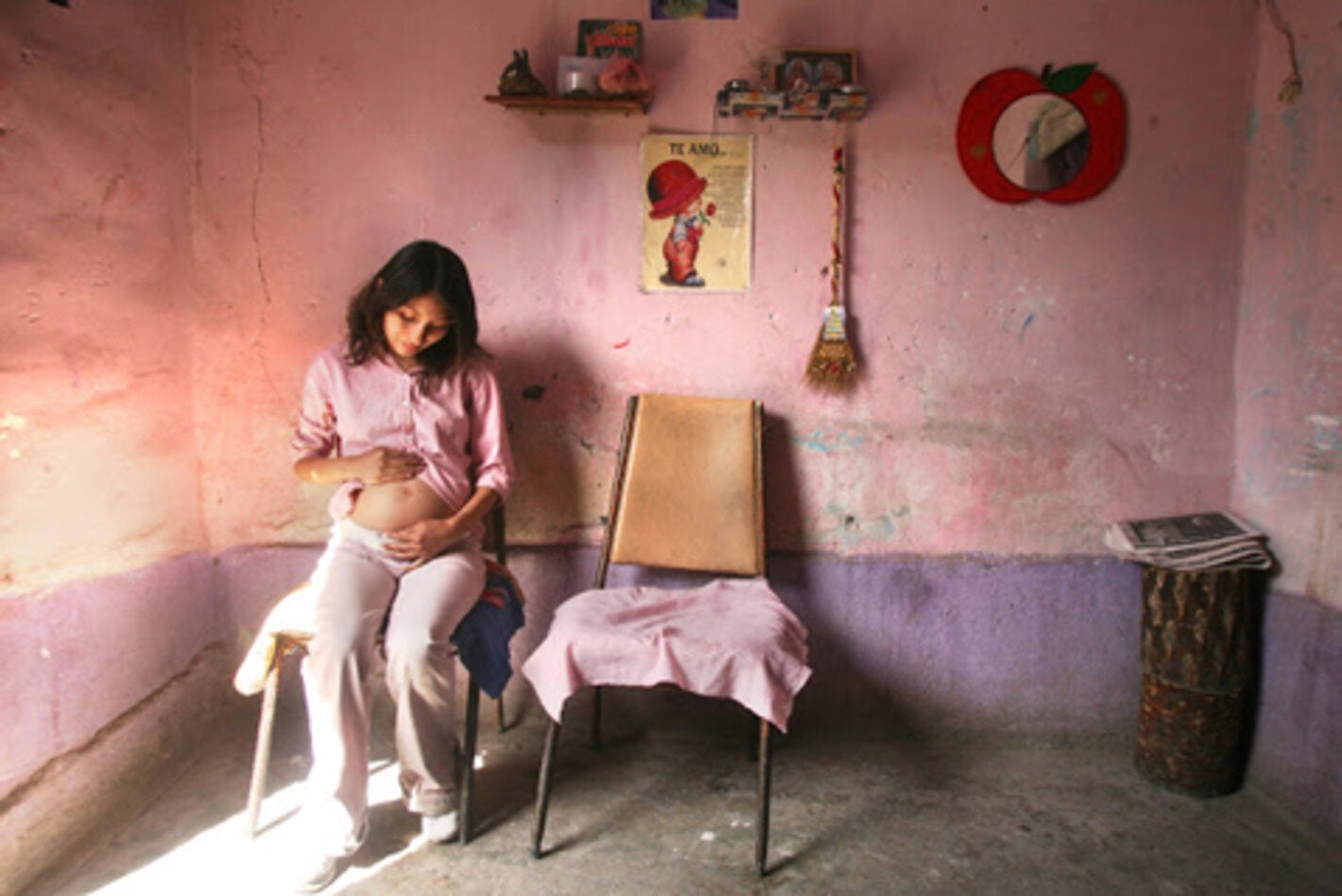
Results published in the Pan American Journal of Public Health show that pregnancies increased, despite wider use of contraception
Washington, D.C., 23 May 2013 (PAHO/WHO) — Despite improvements in women's level of schooling, increasing access to paid employment, growing use of contraceptive methods, and reductions in fertility, in 2008, 33% of all births in Paraguay were unplanned, according to a study published in the latest issue of the Pan American Journal of Public Health.
The study, "Reproductive intentions and factors related to unplanned births, Paraguay, 1995-2008," finds that, of the 33% of births that were unplanned, 25.6% were mistimed (occurring earlier than desired) and 7.7% were unwanted (not desired at any time). In addition, mistimed births increased by more than 50% from 1995 to 2008.
Not being married or in a stable relationship was associated with regarding the most recent birth as unwanted or mistimed, according to the study.
Women 15—19 years old were more likely to consider their most recent birth as mistimed, compared with those in the 30—44 age group. The study recommends that family planning programs in Paraguay prioritize care for adolescents and young adults and sexually active women who are not in a stable relationship.
Only 2% of Mexico's health budget earmarked for mental health
The latest issue of the Pan American Journal of Public Health, an open-access, peer-reviewed scientific publication of the Pan American Health Organization (PAHO/WHO), also includes the study "Evaluation of the mental health system in Mexico: where is it headed?" It finds that only 2% of Mexico's total health budget is allocated for mental health and, of that share, 80% supports the operation of psychiatric hospitals.
Although this figure is slightly (1.53%) higher than mental health allocations in other Latin American countries, Mexico—like other countries—it is insufficient to address the increase in chronic degenerative diseases including mental disorders, which "represent a significant public health problem due to their high prevalence, heavy disease burden, and elevated financial and social costs," say the authors.
The article notes that one out of four Mexicans ages 18—65 has suffered a mental disorder at some time in their lives, yet only one in five receives treatment. Moreover, patients can wait anywhere from 4 to 20 years to receive care in a health center, depending on the type of disorder. The study recommends, among other measures, increasing the number of specialists and offering periodic in-service training for personnel at the first level of care.
Laws on gender violence and sexist advertising
"Laws on gender violence and their effect on sexism in advertising: a comparative analysis of advertisements from Argentina, Mexico, Spain, and the United States," published in the same issue finds, that countries with legislation aimed at using communication to prevent gender violence do not have less sexism in their advertisements.
According to the study, men were shown in public places more often than women in the ads from Argentina, Spain, and Mexico, and men were shown more often than women practicing neutral professions. In addition, men were shown more often than women as workers.
The following articles also appear in this issue of the Pan American Journal of Public Health:
- Managing dental caries with atraumatic restorative treatment in children: successful experience in three Latin American countries.
- Barriers to prevention of cardiovascular disease in primary care settings in Argentina.
- Human papillomavirus genotypes in invasive cervical squamous cell carcinoma in Trinidad.
- Diagnosis of capacity to perform essential public health functions in the Central American countries, the Dominican Republic, and the Mexican states of Chiapas and Quintana Roo.
- Conflicting values in Colombia's health system: balancing the market economy and constitutional legislation, 2007-2009.
The Pan American Journal of Public Health is an electronic publication that aims to disseminate scientific public health information as part of PAHO's mission to strengthen national and local health systems and improve the health of the peoples of the Americas.



